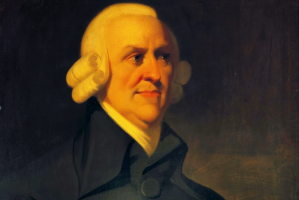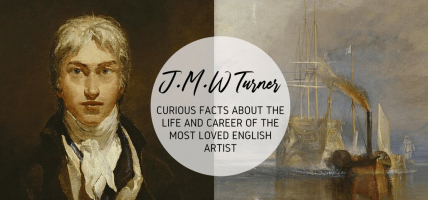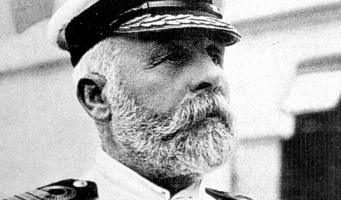Top 8 Interesting Facts About Joseph Smith
Many of us know only a few common facts about Joseph Smith: He was born in Sharon, Windsor County, Vermont on December 23, 1805. His father’s name was Joseph ... read more...Smith. He lived on a farm in western New York when he had the First Vision, etc. Here's a list of other interesting facts about Joseph Smith.
-
Between 1811 and 1814, there was a significant typhoid outbreak in New England. Typhoid caused Joseph Smith to experience excruciating fevers, which led to an abscess in his shoulder. His shoulder was lanced during the first surgery to remove any infection-causing material.
It is believed that through his bloodstream, the bacteria from the shoulder abscess traveled to the tibia of his left leg. The infected leg eventually started to swell. After three weeks of excruciating pain on Joseph's infected leg, the second surgery was performed. Between Joseph's knee and ankle, Dr. Stone, a surgeon from Hannover, made an eight-inch incision. Joseph continued to experience pain as the wound recovered. A longer incision was used during the third surgery. Unfortunately, as the healing process advanced, the swelling grew even more.
The fourth surgery was a test procedure. In order to remove the infected bone from the internal cavity, it was necessary to cut through new bone growth. In America, amputation was the only option since this was unheard of. The challenging leg surgery was carried out by Dr. Nathan Smith, the primary surgeon. During the procedure, nine sizable pieces of bone were removed. The surface of the wound was also cleared of an additional fourteen pieces.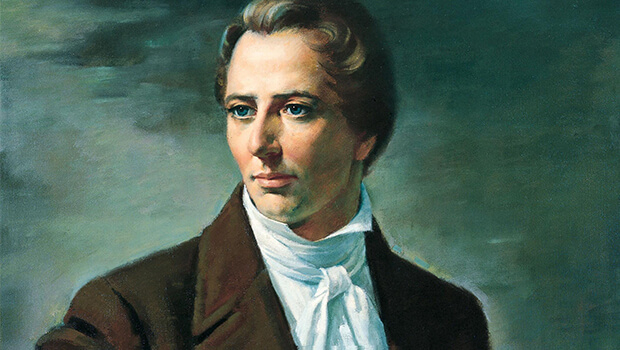
Photo: LDS News | Mormon News - Church of Jesus 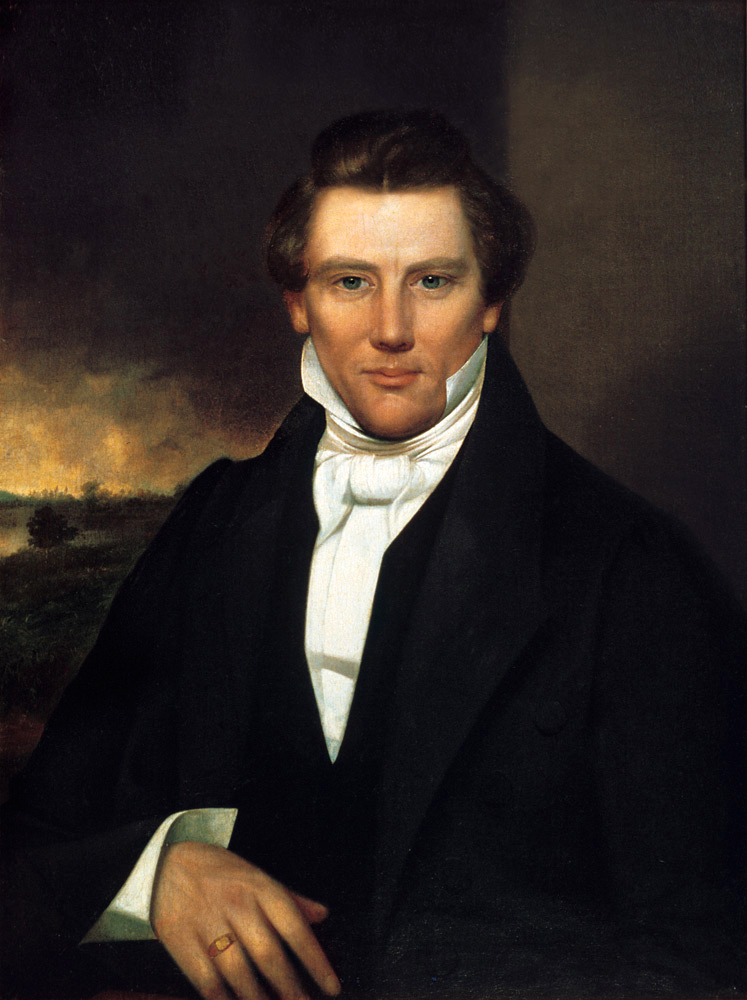
Photo: Wikipedia -
Persecution was a major part of Joseph Smith's life. He was the target of numerous pointless lawsuits. On Wednesday, August 17, during Campus Education Week at BYU, Gordon A. Madsen, a retired lawyer, discussed some of those lawsuits. Apparently, 45 civil lawsuits were filed between March 1834 and November 1839, according to him.
One such legal encounter involved a written clause in a land purchase and transfer contract in Harmony, Pennsylvania. Brother Madsen claimed that Joseph paid $200 to buy a building from Isaac Hale, Emma's father. A businessman in Harmony named Mr. Noble gave Joseph credit. In small towns, Brother Madsen observed that business owners frequently behaved like bankers. The claim that Joseph did not settle his debt was contested. Joseph later sold the land for $300 after the judge declared it to be satisfied.
“This one of the very few instances where Joseph made some money,” Brother Madsen said.
In Ohio, additional lawsuits involving Joseph Smith persisted. One of them, according to Brother Madsen, involved Philastaus Hurlbut, a former member of the Church who was accused of endangering Joseph Smith's life. After a trial, Mr. Hurlbut was adjudged guilty. In addition to paying a peace bond, the court commanded him "to keep the peace and specifically to leave Joseph Smith unmolested." There was a court fee of $112.50 in addition to the $200 bond. The bondsmen were anxious after Mr. Hurlbut left town because they would be responsible for the cost. When the sheriff attempted to collect the court fees, a notice saying "No property found" was returned.
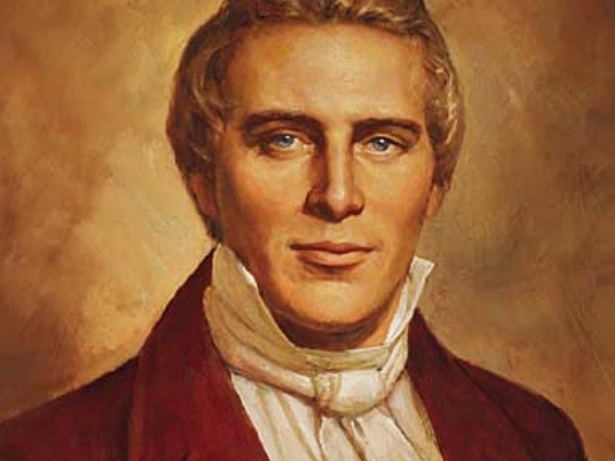
Photo: Ask Gramps 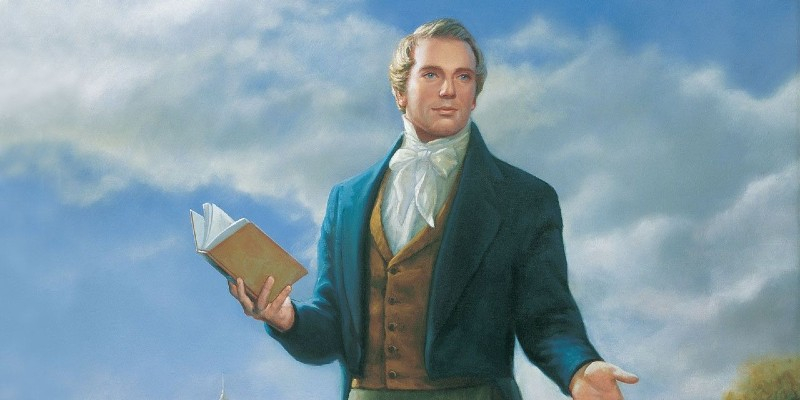
Photo: Literary Hub -
The Lord's established law of marriage, according to Latter-day Saints, is monogamy, or the union of one man and one woman. One man and multiple women can be married in biblical times, as the Lord commanded some of His people to do. This commandment was given through God's prophets to some early members of The Church of Jesus Christ of Latter-day Saints, and they received it and followed it.
Joseph Smith married multiple wives after receiving a revelation ordering him to do so and spreading the custom among his close friends. For Joseph and other Church members, this principle was one of the Restoration's most difficult tenets. Marriage between two people put their faith to the test and sparked opposition. The restoration of a biblical practice that was completely alien to Latter-day Saint sensibilities was initially met with little enthusiasm. But many later testified of intense spiritual encounters that gave them the strength to accept this practice and enabled them to get over their reservations.
Because participants were asked to maintain their anonymity, many details about the early usage of plural marriage are unknown. Early plural marriage has a scant historical record because there aren't many sources that provide specifics from the time, and later memories aren't always trustworthy. The practice of plural marriage by Joseph Smith and other early Latter-day Saints is discussed in several significant stories told by the Saints.
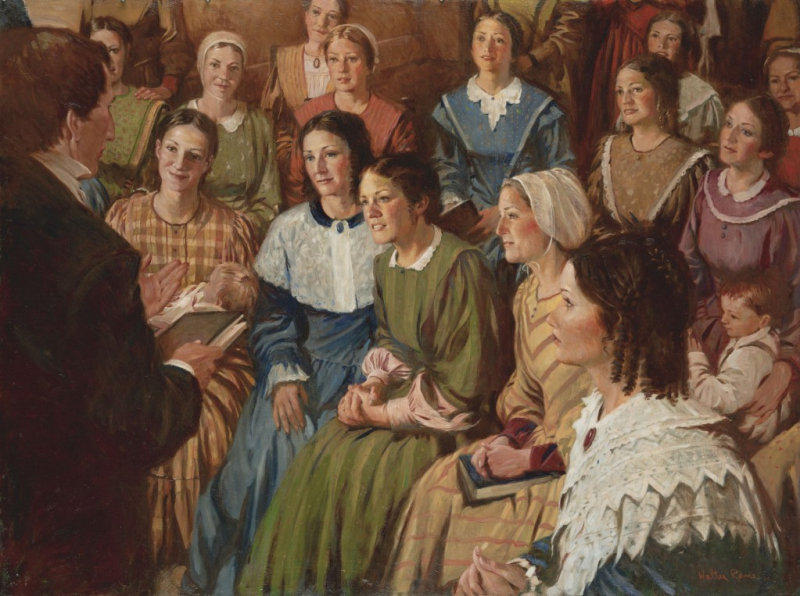
Photo: Ploni Almoni - Joseph Smith's Wives Video: Dan Vogel - Joseph Smith and Other Men's Wives -
In 1844, Church of Jesus Christ of Latter-day Saints First Presidency first counselor Sidney Rigdon and Joseph Smith, founder of the Latter Day Saint movement, ran for president and vice president, respectively. Smith was assassinated in Carthage, Illinois, on June 27, a month before the November 1–December 4 presidential election that year. Smith was both the first American presidential candidate to be assassinated and the first Latter Day Saint to run for office.
Smith served as mayor of Nauvoo, Illinois, which had 12,000 residents and was the second-most populous city in Illinois in 1844. Leaders of the Latter Day Saints pleaded with followers to support candidates who had received the backing of the church. As a result, in state elections, the Latter Day Saint population of the city maintained the balance of power between the Democrats and Whigs. The Nauvoo Legion, a quasi-public military force under Smith's command, had 2,500 members, making it almost one-third the size of the American Army. In Junius and Joseph, Wicks and Foister make the case that political operatives with ties to Henry Clay, a Whig who opposed Smith, were present at activities surrounding the raid on the jail where Smith was detained while awaiting trial for treason, among other offenses.
In his platform for the election, Smith called for the gradual abolition of slavery, the shrinking of Congress, the re-establishment of a national bank, the annexation of Texas, California, and Oregon, the reform of prisons, and the federal government's protection of the rights of minorities like the Latter Day Saints.
Photo: Saints Unscripted - Joseph Smith ran for President of the United States 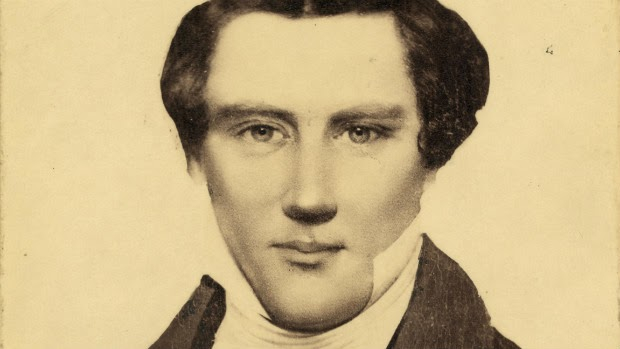
Photo: Lincoln Cannon -
You might be surprised to learn that one of the interesting facts about Joseph Smith, the founder and spiritual leader of the Latter Day Saint movement, is that on June 27, 1844, while they were detained in the local jail awaiting trial, they were shot and killed by a mob in Carthage, Illinois, in the United States.
A group of non-Mormons and others who had left the church founded the Nauvoo Expositor, a newly established newspaper, and Joseph Smith, as mayor of the city of Nauvoo, Illinois, had directed its destruction. Smith and other church leaders were harshly criticized in the newspaper's first (and only) issue, which claimed Smith was engaging in polygamy and intended to establish himself as a theocratic king. The Nauvoo City Council then voted to label the newspaper a public nuisance, and Smith subsequently gave the order to have its press destroyed.
Following public outrage over the destruction of the press, the Smith brothers and other Nauvoo City Council members were accused of inciting a riot. Courts in Nauvoo dismissed arrest warrants for Smith. Smith proclaimed martial law there and requested assistance from the Nauvoo Legion to defend the city. Smith briefly left Illinois before coming back, at which point the brothers voluntarily went to the county seat in Carthage to face the charges. The brothers were charged with treason against Illinois for imposing martial law after turning themselves in to the authorities.When an armed mob of about 200 men stormed the building while their faces were painted black with wet gunpowder, the brothers were in the Carthage Jail awaiting trial. Hyrum shouted, "I'm a dead man, Joseph!" as he fell and was shot in the face, killing him almost instantly. Joseph was shot multiple times while attempting to jump from a second-story window to safety after emptying the pistol he had used to defend himself. He died as he fell from the window.
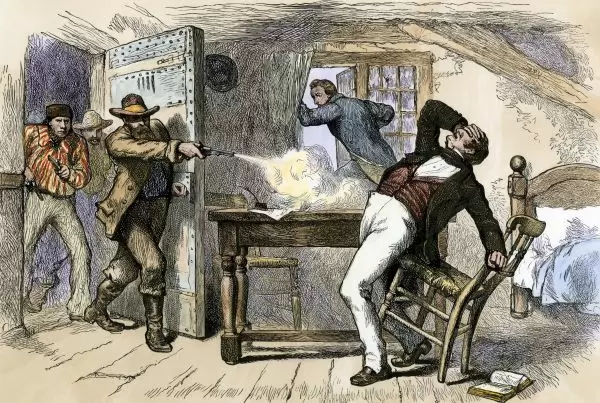
Photo: North Wind Picture Archives Photos Prints and Wall Art - Death of Joseph and Hyrum Smith 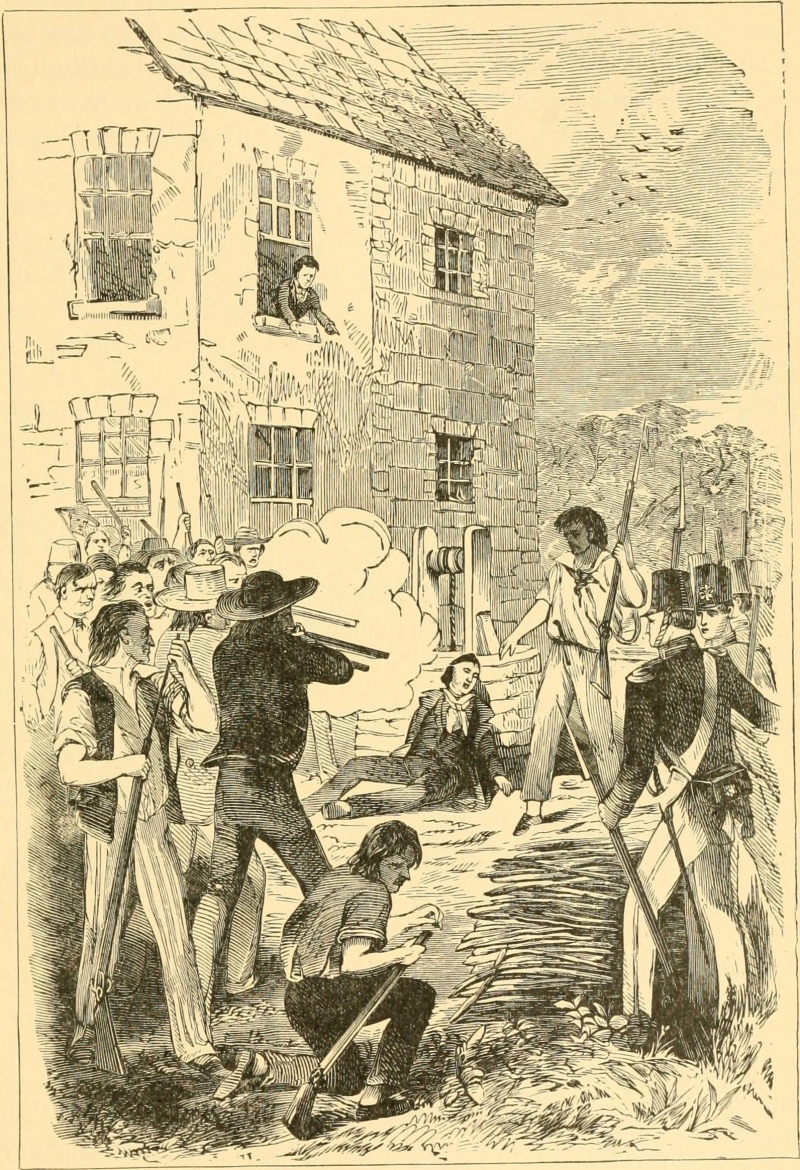
Photo: Wikimedia Commons - Joseph Smith killed by a mob of indignant citizens -
One of the interesting facts about Joseph Smith is that Joseph enjoyed his family. His official diary contains dozens of entries similar to this one from March 27, 1834: "Remained at home and had great joy with my family." Indeed, one convert family allegedly apostatized as a result of Joseph coming downstairs from the room where he had been translating "by the gift and power of God" and starting to play and romp with his children when they arrived in Kirtland from the East, according to a cousin, George A. Smith. They believed that this was not appropriate conduct for a prophet! In his journal, the Prophet records taking his family on outings on Mississippi River boats, as well as to theater productions, musical concerts, and circus shows.
According to the information gathered by Richard Anderson, Marvin Hill, Dean Jessee, Ivan Barrett, and others about his boyhood, the family he grew up in was intelligent and hardworking but not highly educated. Every morning and evening, they prayed together. They also loved to sing hymns, read the Bible as a family and were very interested in religion. The boys took part in games of ball, wrestling, and pulling sticks as well as other homemade sports. Joseph was referred to as "a clever, jovial boy" by a neighbor. Another neighbor noted that Young Joe worked for him and that "he was a good worker," adding that the Smiths were "the best family in the neighborhood in case of sickness."
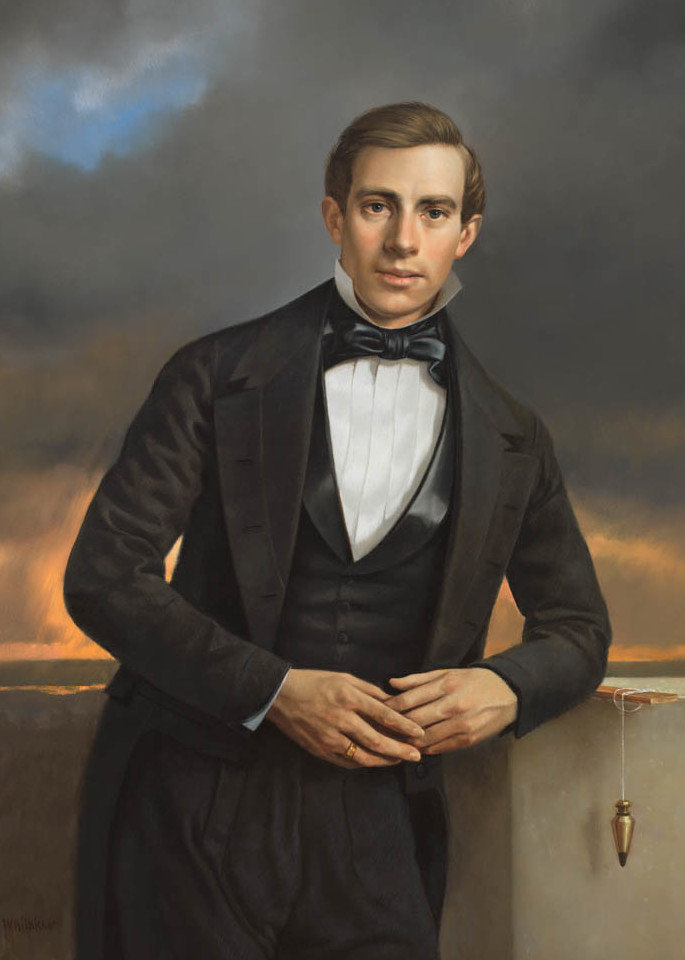
Photo: Cornerstone Art - Joseph Smith 1841 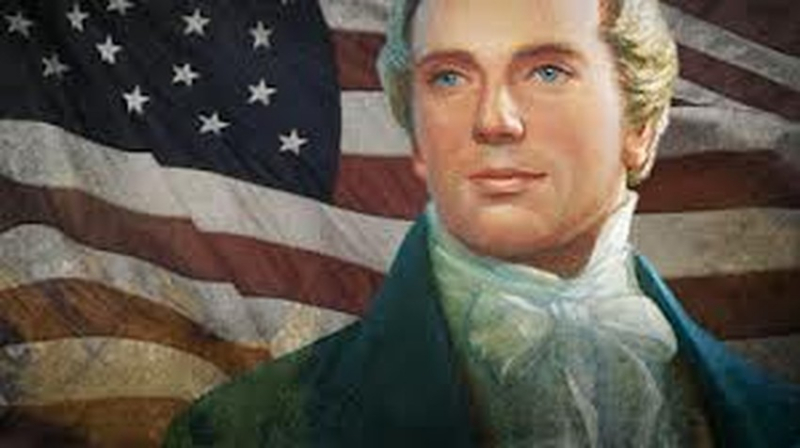
Photo: PLO -
Many sincere people in his day's society routinely saw the serious side of things that had no serious side and believed that humor and religion couldn't coexist. However, Joseph Smith thought humor and religion could get along just fine. He believed that there is still plenty of room for humor once one recognizes that there is something other than laughter—a core to life that is solemn, serious, and tender. At least, that's how one of his contemporaries described him: "a jolly good fellow."
There can be no doubt that Joseph Smith developed in this manner. There are numerous accounts of him from the time period. He possesses the innate refinement that one finds in the born poet or the most highly educated intellectual, according to one person who met him. One person described him as "sociable, easygoing, cheerful, accommodating, kind, and hospitable." He was described as "kind and considerate, taking a personal interest in all people, and considering everyone his equal" by another person. He was still referred to by another as "a fine, noble-looking man." All of which imply that he had a healthy, balanced, and endearing personality and that others valued his company.
Everyone was drawn to Joseph Smith right away because of his spontaneity, jollity, and blend of seriousness of purpose and good humor.
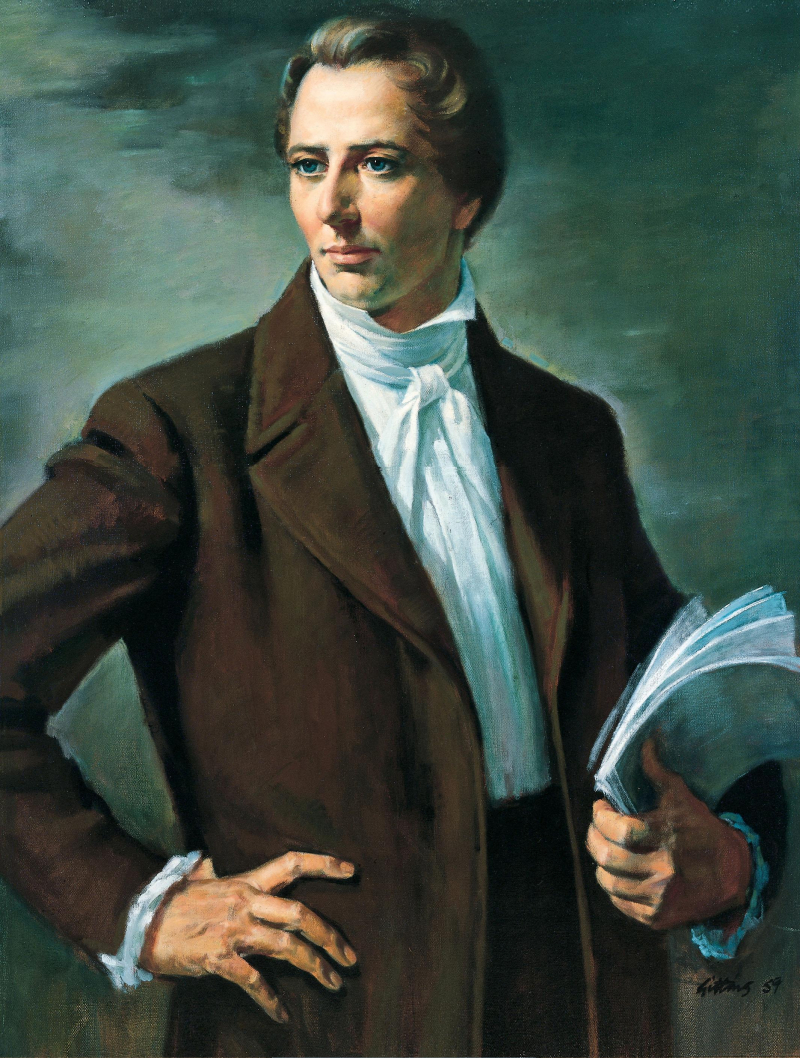
Photo: Church Newsroom - Church of Jesus Christ 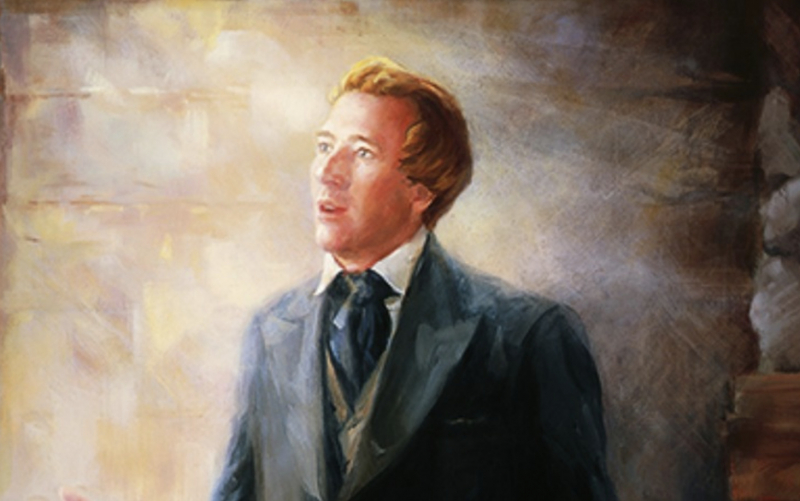
Photo: Meridian Magazine -
At the age of 19, Josiah Stowell, who resided in South Bainbridge, close to the New York-Pennsylvania border, hired Joseph Smith. Stowell had employed Joseph and his father to help him find the treasure because he thought there was an abandoned Spanish silver mine with it nearby. Stowell had heard that Joseph "had certain means, by which he could discern things that could not be seen by the natural eye," according to Joseph's mother, Lucy Mack Smith. Stowell desired that Joseph make an effort to find the Spanish mine and treasure using those methods (a seer stone). After working with this group for about a month, Joseph convinced Stowell to give up the endeavor but persisted in working as a hired hand on Stowell's farm.
Peter Bridgeman, Stowell's nephew, thought Joseph was defrauding his uncle in March 1826. Bridgeman filed a lawsuit against Joseph on the grounds that he was a "disorderly person," a legal designation that in the 1820s encompassed those who "pretended... to discover where lost goods may be found." Because local New York courts at this level were not courts of record, no original court transcript was created, and existing historical sources convey inconsistent and contradictory information, determining the specifics and outcome of this legal action has been challenging until recently. Due to the unclear source materials, some detractors have asserted that Joseph was found guilty and sentenced for being a disorderly person.
However, a careful examination of recently discovered sources by legal historian Gordon A. Madsen reveals that no guilty verdict was rendered in this case. Madsen claims that the evidence shows“that in 1826 Joseph Smith was indeed charged and tried for being a disorderly person and that he was acquitted. Whatever the gist of that charge, he was found guilty of no crime.”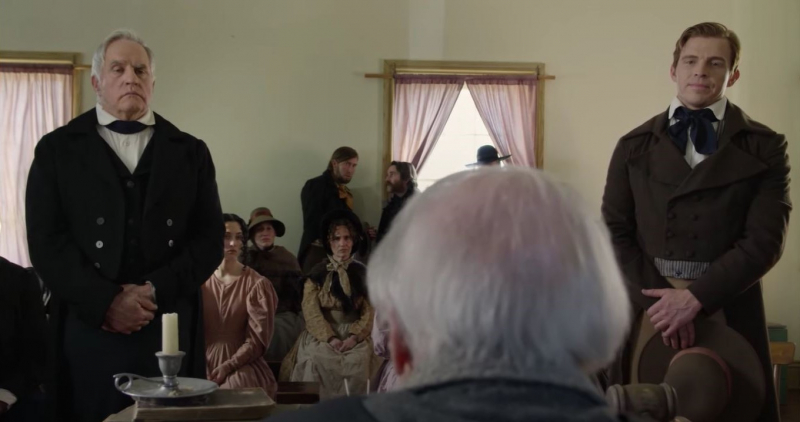
Photo: Book of Mormon Central - Joseph Smith was accused of being a “Disorderly Person” in 1826 Video: Book of Mormon Central - Joseph Smith was accused of being a “Disorderly Person” in 1826











